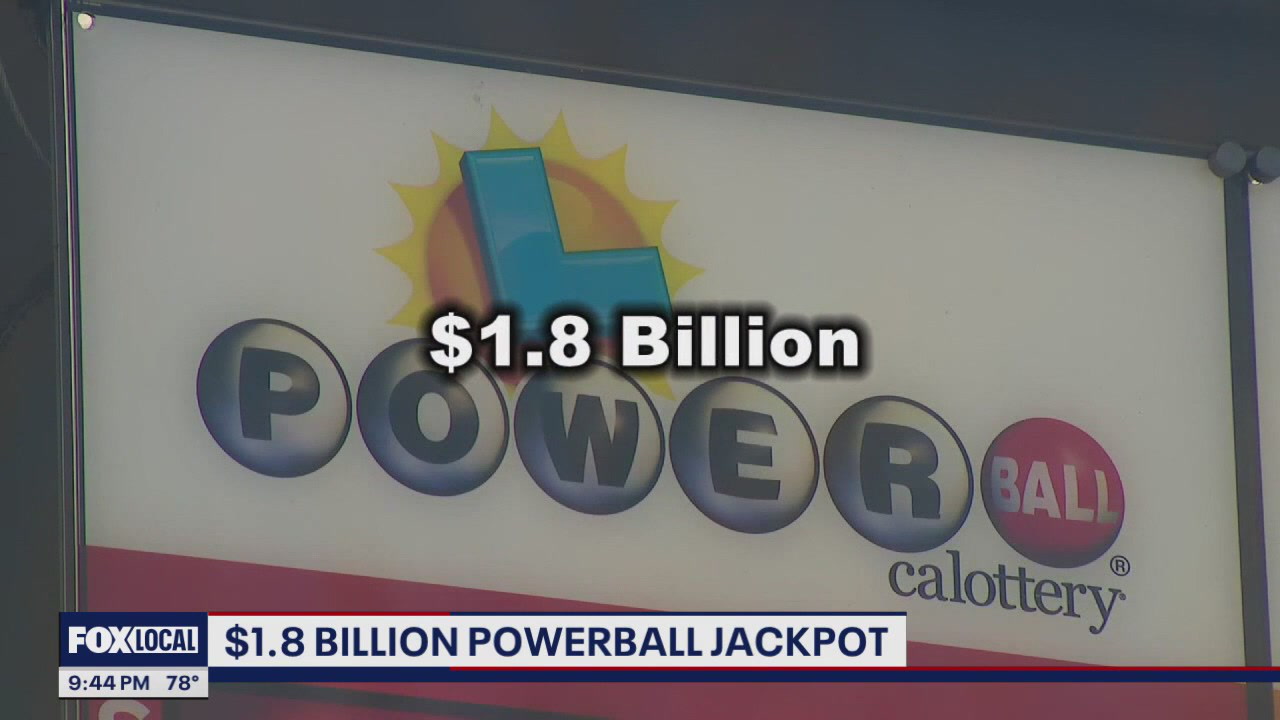The Powerball lottery has once again rewritten history, this time with a colossal jackpot that climbed close to $1.8 billion. Two winning tickets, purchased in Texas and Missouri, have captured global attention, sparking endless conversations about luck, money, and the transformative power of chance. For the winners, life is about to change forever. For the rest of the world, their story fuels the imagination, raises questions about sudden wealth, and reinforces the cultural fascination with lotteries as a path to fortune.
- The Magnitude of the Powerball Jackpot
- Where the Winning Tickets Were Sold
- Decisions Facing the Winners
- The Psychology of Sudden Wealth
- The Economic Ripple Effect of Powerball
- Lottery Culture and the American Dream
- Stories from Past Winners
- The Global Fascination with Lotteries
- FAQs
- How much did the Powerball winners receive?
- Where were the winning tickets sold?
- Do store owners benefit when they sell winning tickets?
- What challenges do lottery winners face?
- How do lotteries benefit the public?
- Conclusion
The announcement of winning tickets instantly created waves of excitement in both states. Small-town communities and big-city neighborhoods alike are buzzing with speculation over who might be holding the slips that unlock unimaginable wealth. This historic Powerball event is not only about the staggering jackpot but also about what it reveals regarding human psychology, economics, and society’s relationship with risk and reward.
The Magnitude of the Powerball Jackpot
Lotteries have been around for centuries, but the scale of modern jackpots is unparalleled. The nearly $1.8 billion Powerball prize is one of the largest in history, showcasing the massive popularity of the game and the extraordinary volume of ticket sales. According to the Multi-State Lottery Association, ticket purchases surged in the days leading up to the draw, with millions of Americans investing in the dream of overnight riches.
Statistically, the odds of winning the Powerball jackpot are slim—about 1 in 292.2 million. Yet, as the prize pool swells, so too does public participation. Psychologists explain this as a mix of “jackpot fever” and the appeal of possibility. Even though logic dictates that the odds are nearly impossible, people are drawn to the excitement, the conversations at work, and the shared anticipation. The result is a cycle where soaring jackpots attract more players, which in turn pushes the jackpot even higher.
Where the Winning Tickets Were Sold
While the identities of the winners remain undisclosed, officials confirmed that the two winning tickets were sold in Texas and Missouri. This revelation has turned gas stations, convenience stores, and supermarkets into local landmarks overnight. Customers flock to these locations to ask questions, take photos, and imagine what it would feel like to be the lucky buyer.
Retailers benefit as well. Store owners who sell winning tickets usually receive financial bonuses from state lottery commissions, and the recognition can bring long-term increases in business. In some cases, local stores become small tourist attractions, drawing visitors eager to see the birthplace of fortune.
For the communities, the excitement is tangible. In both states, neighbors are speculating whether someone in their town is about to become one of the richest individuals in the country. While many winners choose to remain anonymous, some eventually step into the spotlight, reshaping not only their own futures but also the public perception of what it means to win big.
Decisions Facing the Winners
Winning such an enormous jackpot comes with immediate and life-altering decisions. The first is choosing between the lump-sum payout and the annuity option. For a prize this large, the lump sum is estimated at around $800 million after taxes, while the annuity would pay annual installments spread over three decades.
Financial experts often recommend that winners assemble a team of professionals before making public announcements. This team typically includes financial advisors, tax specialists, and legal consultants who can guide them through estate planning, investment strategies, and protection against potential risks. Sudden wealth, while thrilling, can also bring challenges such as scams, strained relationships, and difficulty adjusting to a new lifestyle.
A well-known financial planner once remarked, “Winning the lottery is like being handed the keys to a spaceship. It can take you to incredible places, but without training and guidance, it can also crash very quickly.” This analogy highlights the importance of responsible management when life changes in an instant.
The Psychology of Sudden Wealth
The human brain is not naturally wired to handle an overnight transition from ordinary life to extraordinary fortune. Research on past lottery winners reveals mixed outcomes. Some report lasting happiness, the ability to provide for loved ones, and the freedom to pursue passions. Others struggle with identity crises, strained relationships, and reckless spending.
Psychologists emphasize the concept of “sudden wealth syndrome,” a condition characterized by stress, guilt, and confusion when individuals are thrust into immense financial power. A clinical expert explained, “Money changes dynamics. Friends and family often treat winners differently, and the pressure to say yes to requests or to live up to others’ expectations can be immense.”
For winners in Texas and Missouri, the road ahead will involve not just financial planning but emotional resilience. Balancing joy with responsibility, and generosity with self-preservation, will determine whether the fortune becomes a lifelong blessing or a cautionary tale.
The Economic Ripple Effect of Powerball
While the jackpot grabs headlines, the economic impact of lotteries extends much further. State lotteries, including Powerball, channel billions of dollars annually into public programs. In Texas, lottery revenues support education and veterans’ services, while Missouri directs funds toward public schools and infrastructure.
Beyond state funding, the communities where winning tickets are sold experience a short-term economic boost. Stores see increased foot traffic, local media outlets generate advertising revenue, and a sense of shared excitement energizes towns and cities. This ripple effect transforms the lottery from an individual win into a community event with tangible benefits.
Lottery Culture and the American Dream
Lotteries tap into a deep cultural narrative about opportunity and luck. In many ways, buying a Powerball ticket is not just about winning money but about participating in the American Dream—the belief that anyone can achieve prosperity, regardless of their starting point. The appeal is universal: for just a few dollars, anyone has the same chance as a billionaire to hold the winning numbers.
Sociologists argue that the popularity of lotteries reflects both hope and inequality. On the one hand, they provide a moment of collective dreaming, a rare shared experience in an increasingly divided society. On the other hand, critics point out that those who can least afford to spend money on tickets are often the most frequent players. Still, the allure of the lottery endures, and record-breaking jackpots like this one keep the dream alive.
Stories from Past Winners
The experiences of previous Powerball winners offer both inspiration and caution. Some have used their winnings to start charities, fund scholarships, and build businesses that uplift communities. Others, however, have faced financial ruin, addiction, or isolation after failing to manage the pressures of sudden wealth.
One memorable story involves a winner who chose anonymity, quietly investing in local businesses and donating to hospitals without seeking recognition. Another involved a public winner who bought luxury homes and cars, only to file for bankruptcy within a decade. These stories illustrate the spectrum of outcomes and highlight the importance of preparation, humility, and balance.
The Global Fascination with Lotteries
Though Powerball is an American game, the excitement it generates resonates worldwide. News of billion-dollar jackpots travels across continents, capturing the imagination of people from diverse cultures. International lotteries have followed suit, with countries like Spain and Italy hosting massive holiday jackpots that attract global attention.
In a world of uncertainty, lotteries represent the possibility of sudden change. They are symbols of luck, risk, and hope, uniting people in the shared fantasy of transformation. The $1.8 billion Powerball win will be remembered not just for its winners but for the way it once again showcased the universal appeal of the lottery dream.
FAQs
How much did the Powerball winners receive?
The jackpot was nearly $1.8 billion. Winners can choose a lump-sum payout estimated at $800 million after taxes or opt for an annuity spread over 30 years.
Where were the winning tickets sold?
The tickets were sold in Texas and Missouri. The exact store locations have not yet been disclosed by lottery officials.
Do store owners benefit when they sell winning tickets?
Yes. Retailers who sell jackpot-winning tickets typically receive a financial bonus, along with increased publicity and foot traffic.
What challenges do lottery winners face?
Winners often struggle with managing sudden wealth, dealing with public attention, and navigating requests from friends and family. Financial and emotional planning is crucial.
How do lotteries benefit the public?
Lottery revenues are directed toward state programs such as education, infrastructure, and veterans’ services, ensuring that the money has a broader social impact.
Conclusion
The sale of winning Powerball tickets worth nearly $1.8 billion in Texas and Missouri is a story of chance, change, and cultural fascination. For the winners, the journey ahead will involve both extraordinary opportunity and unprecedented challenges. For the communities, the event has already brought excitement, hope, and economic ripple effects. And for society at large, it is a reminder of the enduring allure of lotteries as symbols of possibility.
Whether viewed as a life-altering fortune, a collective dream, or a reflection of human desire for transformation, the Powerball remains one of the most powerful cultural phenomena of modern times. As the winners step into their new reality, millions of others will continue to dream, to play, and to imagine what they would do if luck one day smiled on them.







